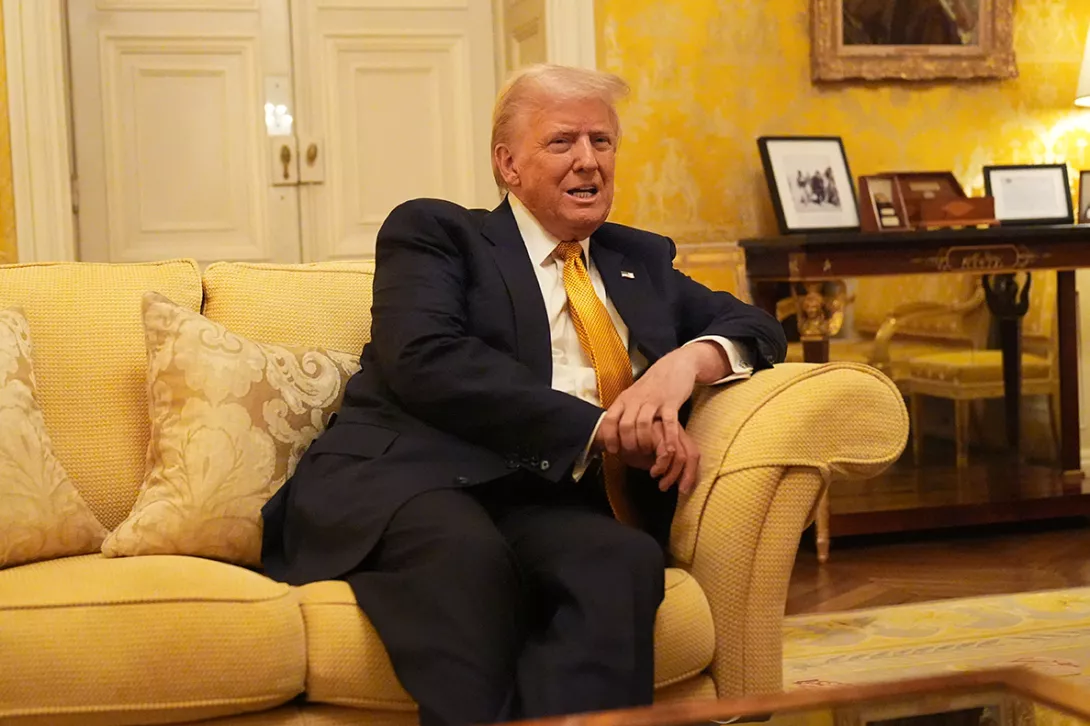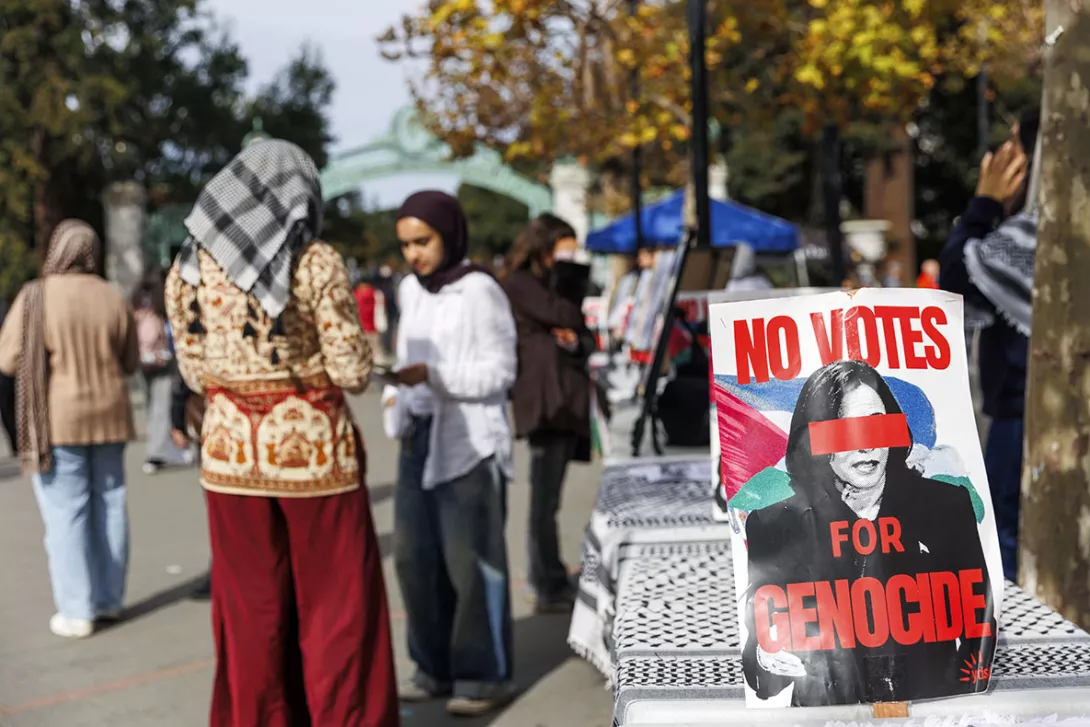Fear, loathing and vodka shots
US Democrats are bracing for election night and the real possibility of a second Trump presidency, writes LINDA PENTZ GUNTER
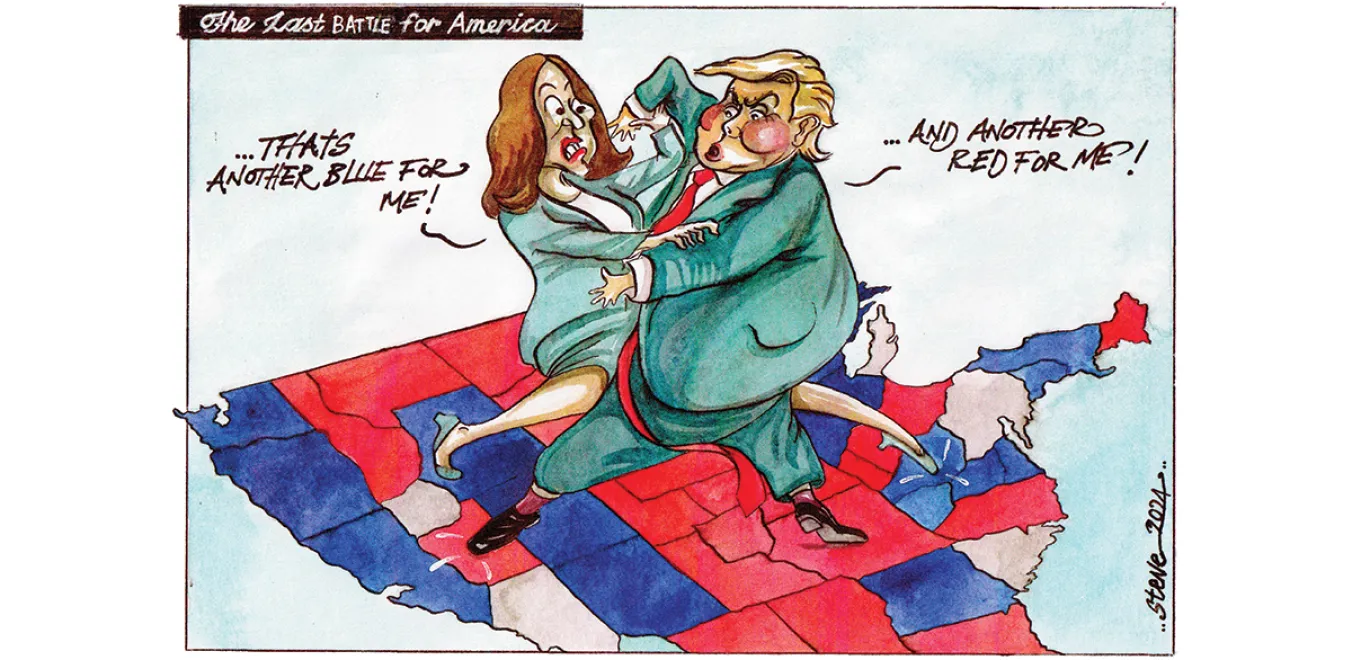
THIS coming Tuesday evening, Democratic US voters will face a choice: whether to settle in front of their televisions with a large mug of strong coffee or a triple vodka tonic.
To watch or not to watch? That is indeed the question on November 5, when our own version of gunpowder, treason and plot could unfold, plunging the country into chaos and fascism should Republican Donald Trump defeat Democrat Kamala Harris and take back the White House.
Is it nobler to stay awake, optimistic in the belief that what passes for US democracy will survive? Or would it be better to sink quickly into alcohol-induced oblivion and hope that when dawn breaks — and despite the hangover — a vulgar, racist felon isn’t president and Harris is?
More from this author

After 46,000 dead and countless more from disease and starvation, Palestinians can celebrate a truce, writes LINDA PENTZ GUNTER, yet even as the Democrat and Republican leaders scramble to take credit, Israel continues killing
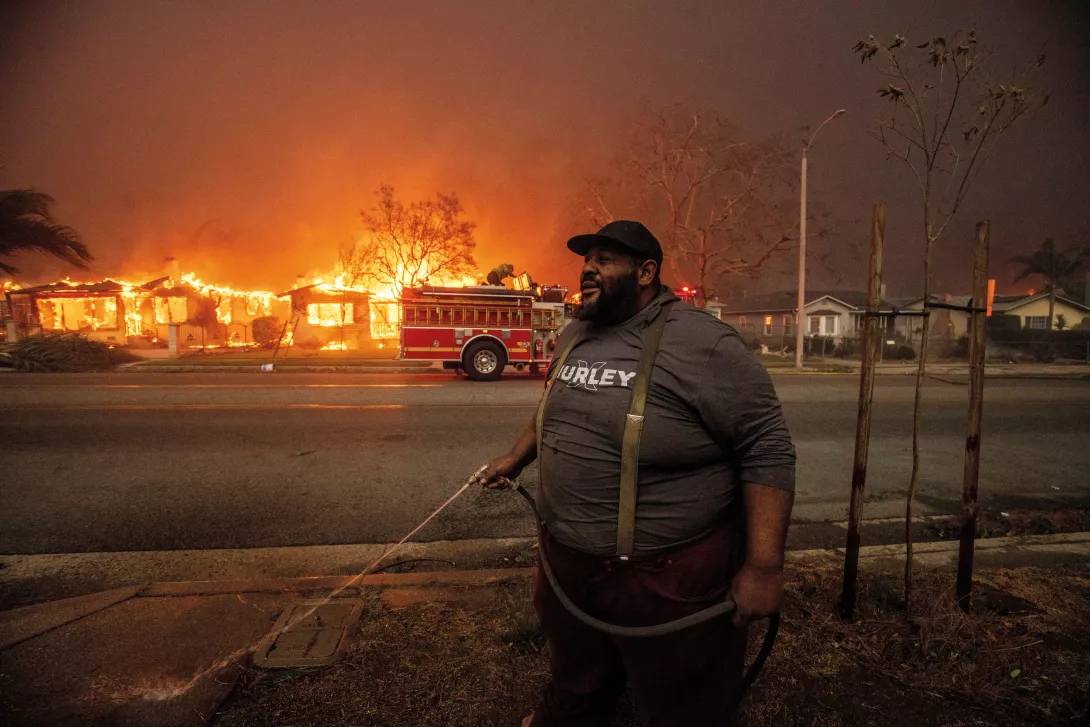
At the same time as they rushed to fight to save areas that were not their own, a bipartisan crackdown on immigration and a savage new law threatens the mass detention and deportation of Latin migrants, writes LINDA PENTZ GUNTER

…but whether globally or locally, each of us can take steps to achieve peace, writes LINDA PENTZ GUNTER

The veteran ocean defender, a founding member of both Sea Shepherd and Greenpeace, is under arrest in Greenland and faces extradition to Japan for protecting whales — but the world outcry isn’t there, writes LINDA PENTZ GUNTER
Similar stories
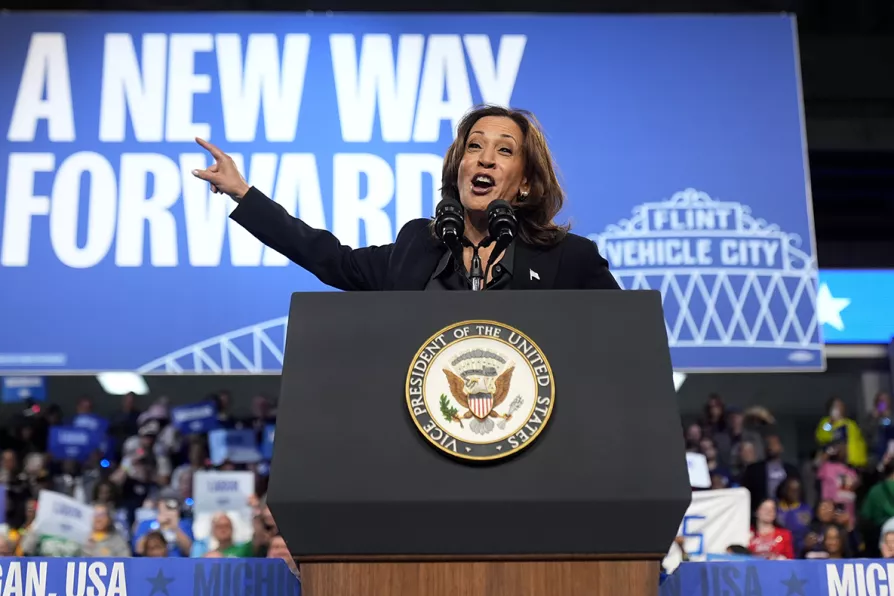
Donald Trump calls her ‘comrade Kamala’ and portrays her as a left-wing radical — but as a presidential candidate, Kamala Harris is endorsing more centrist positions than she did as a progressive senator, writes LINDA PENTZ GUNTER
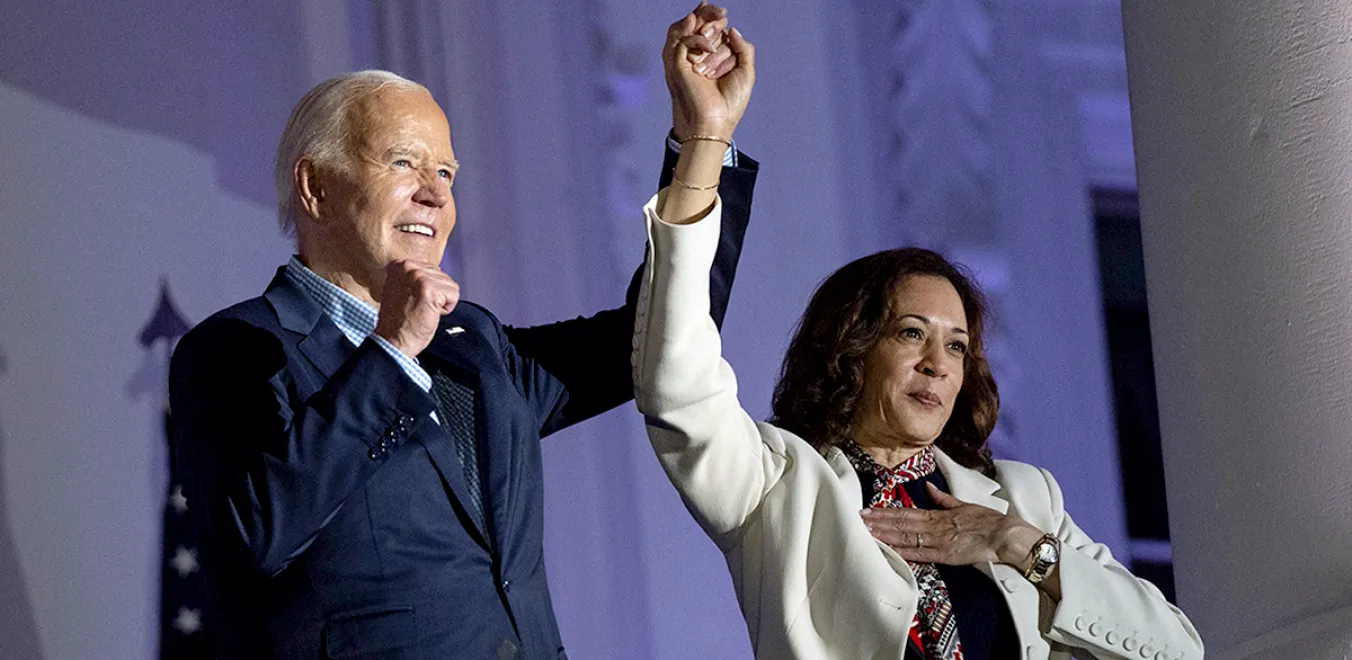
Taking into account the powerful role of Black Lives Matter, women’s rights, and anti-racist sentiment in recent US elections, the Republicans now face a serious challenge, writes DIANE ABBOTT MP
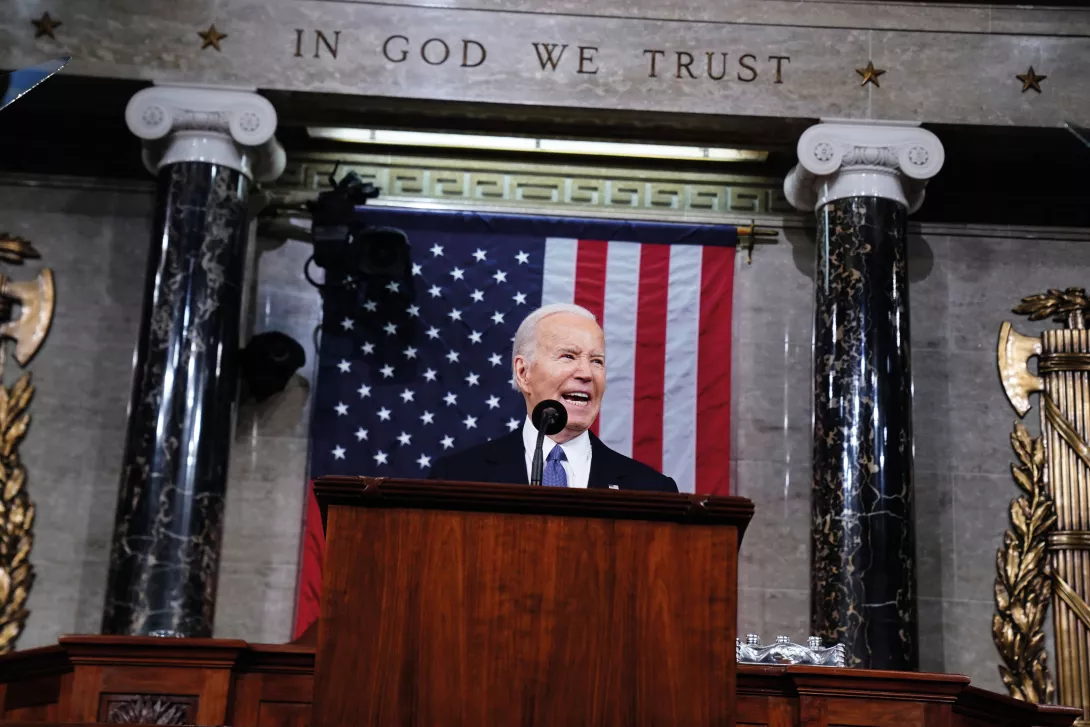
The new rhetoric and promises of increased aid to Palestinians is not a policy shift, it is a strategy shift, as Democrats start to worry about losing the White House in November, writes LINDA PENTZ GUNTER


